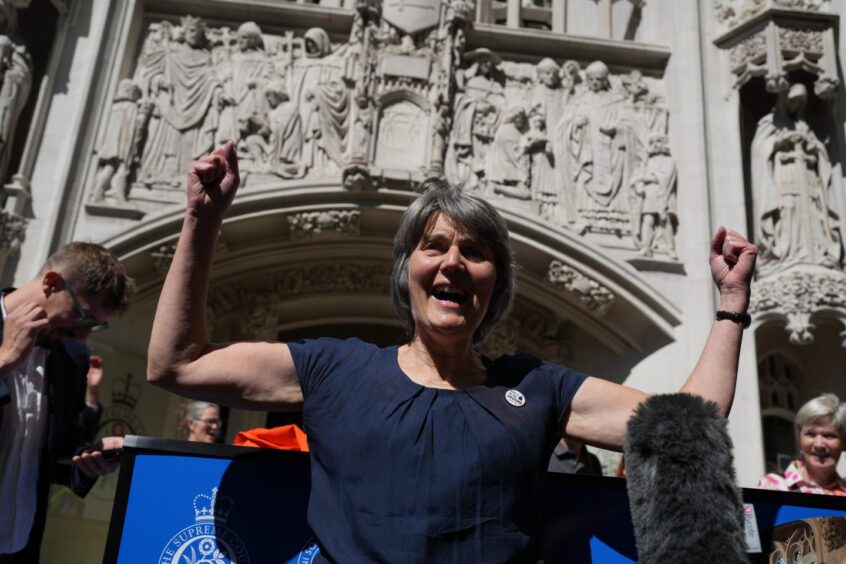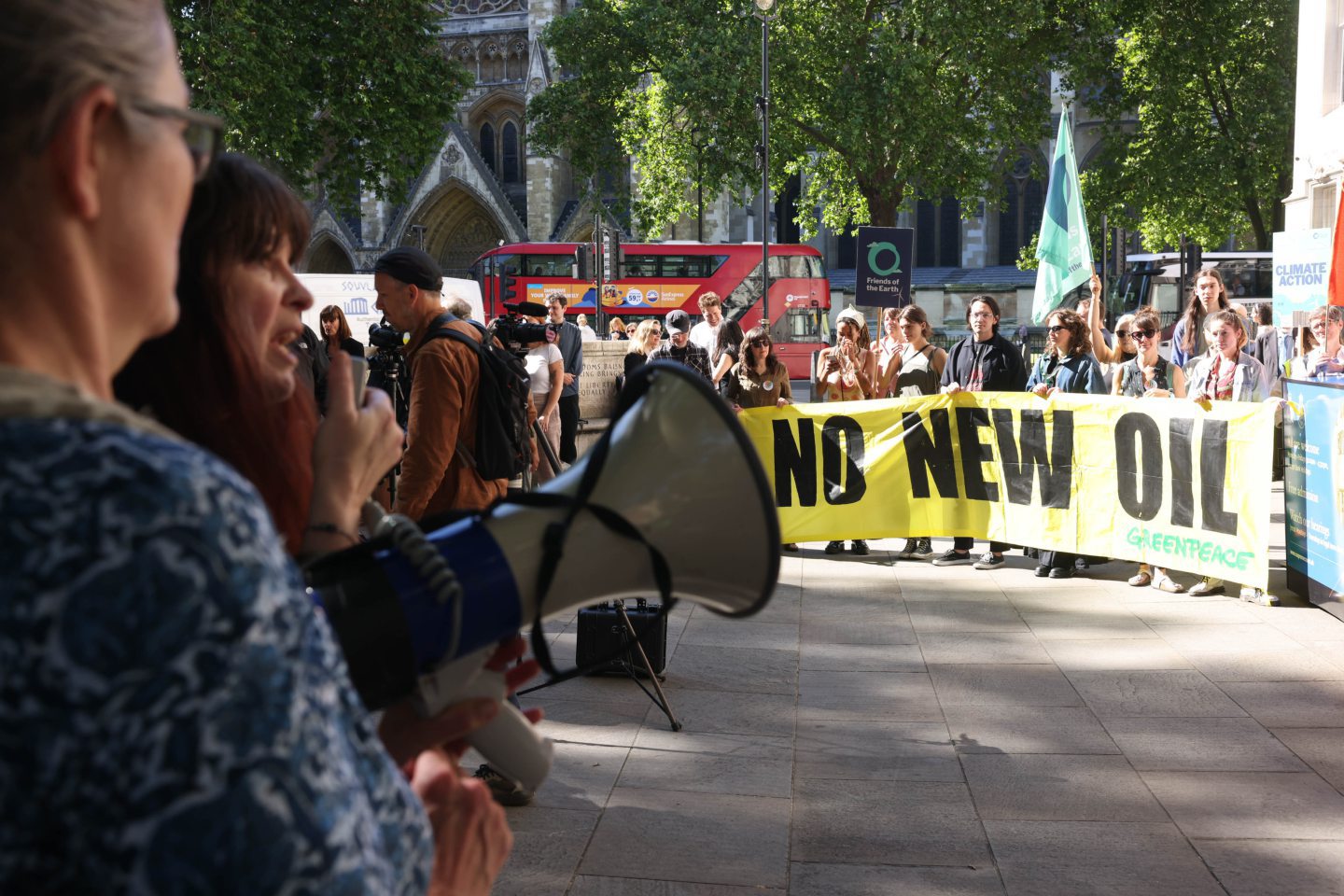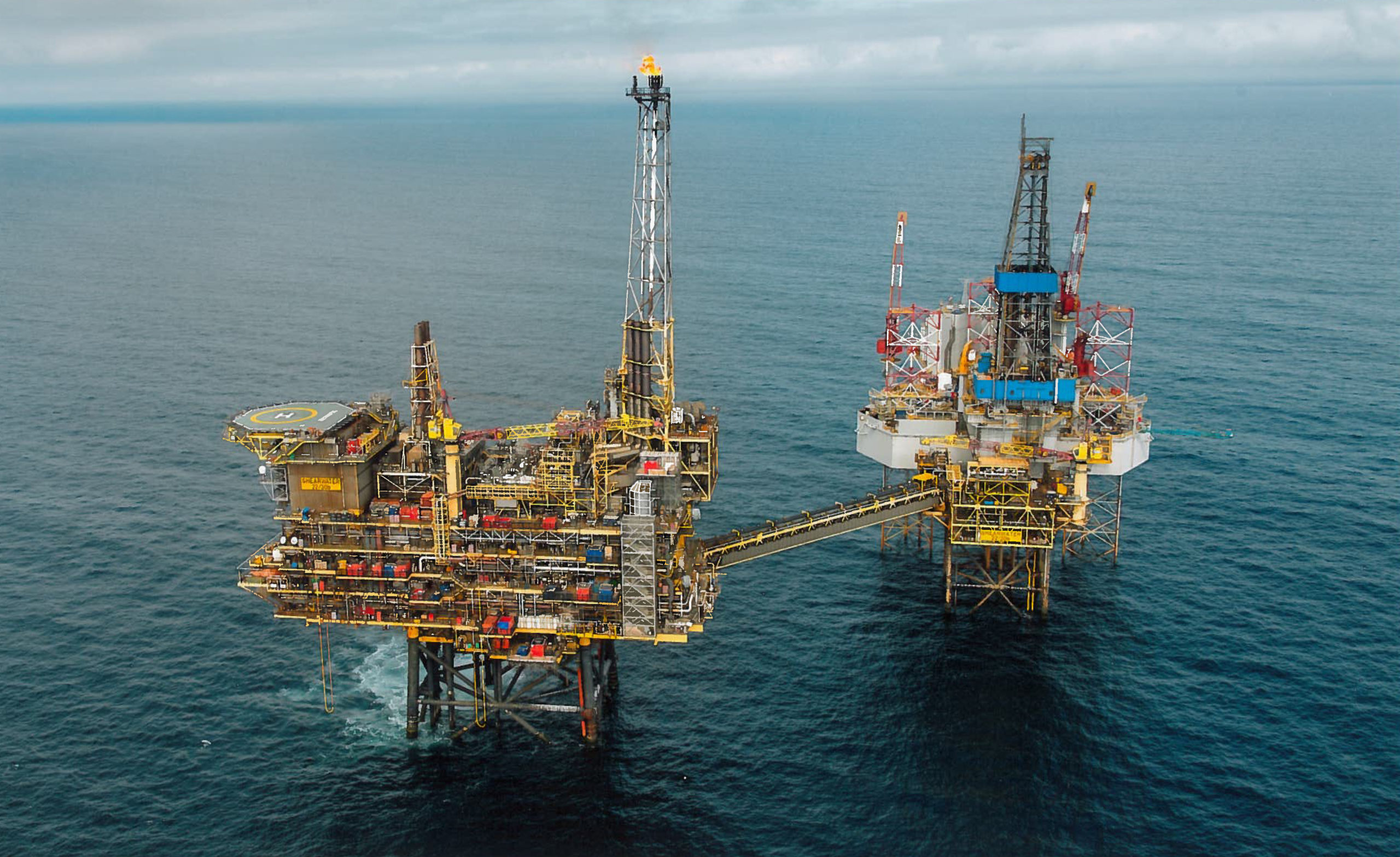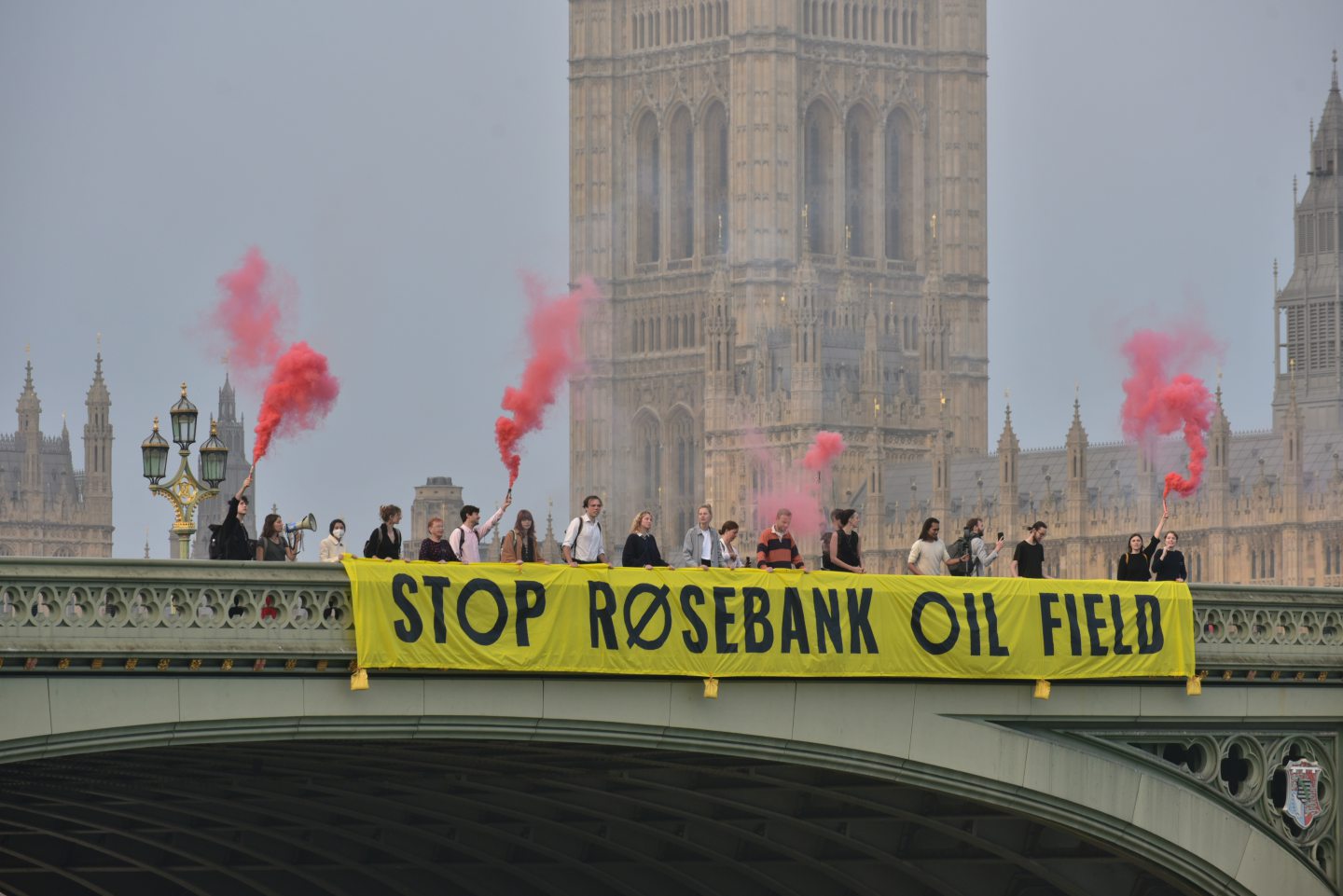 © Image: Friends of the Earth
© Image: Friends of the Earth The UK Supreme Court has overturned planning approval for an onshore oil well in a landmark case which could have implications for North Sea oil and gas projects.
The Finch case stems from a decision by Surrey Council to extend drilling permission for a well at Horse Hill, near Gatwick airport.
Campaigner Sarah Finch argued the council should have to consider the emissions created from the oil’s end use (Scope 3), not just those from the drilling and extraction itself (Scope 1 and 2).
Today, justices in the Supreme Court overturned previous dismissals in the High Court and the Court of Appeal, deciding in favour of Ms Finch and the Weald Action Group.
Environmental campaigners welcomed the ruling, which legal experts say could change the assessment process for all fossil fuel projects in the UK.
The decision could potentially require planning officials to account for downstream, or Scope 3, emissions in their approval decisions for oil and gas projects.
The court ruling could also set a precedent for similar legal challenges against the Jackdaw and Rosebank North Sea oil and gas projects.
Supreme Court ruling
By a three-to-two majority, the Supreme Court decided Surrey Council’s decision to approve the oil well was unlawful.
The court said this is because the emissions that will occur when the oil produced is burnt as fuel are within the scope of the environmental impact assessment (EIA) required by law.
Announcing the court’s ruling, Lord Leggatt said “it is not merely likely but inevitable” that oil produced from the well will eventually be combusted, leading to greenhouse gas emissions.
“It is not disputed that these emissions will have a significant impact on climate,” Lord Leggatt said.
The majority decided the downstream emissions produced by burning the oil are “effects of the project” and should be included in the EIA.
“Consequently, the council’s failure to assess the effect on climate of the combustion of the oil that would be produced from the proposed well site means that its decision to grant planning permission for the project was unlawful,” Lord Leggatt said.
The majority ruling also referenced a recent court decision in Norway concerning downstream emissions from North Sea three oil fields, calling the Oslo court’s decision “persuasive”.
Speaking to the BBC, the chief executive of the company behind the Horse Hill project called the court’s ruling “perplexing”.
UK oil and gas plc CEO Stephen Sanderson added that in recent years the company’s focus “has shifted away from oil and gas and firmly towards … hydrogen storage”.
UK oil and gas plc said they will now work with Surrey County Council to amend its planning application, and that future production will fall below the levels at which an environmental assessment is required.
Greenpeace welcomes ‘huge win for the climate’
Following the ruling, environmental campaigners celebrate outside the Supreme Court building in London.
Greenpeace, which intervened in the case alongside Friends of the Earth, said the case has “significant implications” for future oil and gas projects in the UK.
The group also pointed to its separate legal challenges against the Rosebank and Jackdaw oil fields which have been on hold pending the outcome in the Finch case.
Greenpeace UK climate campaigner Mel Evans said the ruling is a “huge win for the climate”.
“The courts have finally recognised that the government can’t ignore emissions released by burning fossil fuels when granting drilling licences.
“Governments will have to confront what energy experts have long been saying: new oil and gas developments are totally incompatible with the UK’s climate commitments.
‘Historic ruling’
Friends of the Earth lawyer Katie de Kauwe said the “historic ruling” is a “watershed moment” for efforts to prevent further fossil fuel extraction projects in the UK.
“It is a huge boost to everyone involved in resisting fossil fuel projects,” Ms de Kauwe said.
“Gas, oil and coal companies have been fighting tooth and nail to avoid having to account for all the climate-harming emissions their developments cause.
“Now, the highest court in the country has ruled that planning permission for an oil project was granted unlawfully because there was no consideration of its full climate impact.”
Ms de Kauwe said the judgement will make it harder for new fossil fuel projects to go ahead.
“[Oil and gas companies] can no longer claim that downstream emissions are someone else’s problem,” she said.
“Now, when fossil fuel companies apply for planning permission, it follows from the Supreme Court’s judgment, that the end-use emissions must be considered by the planning authority.”
Friends of the Earth said it is considering the “wider implications” of the Supreme Court judgement, including its effects on the group’s legal challenge against the Whitehaven coal mine.
Weald Action Group campaigner Sarah Finch said she was “over the moon” following the ruling.
“This is a welcome step towards a safer, fairer future,” Ms Finch said.
“The oil and gas companies may act like business-as-usual is still an option, but it will be very hard for planning authorities to permit new fossil fuel developments – in the Weald, the North Sea or anywhere else – when their true climate impact is clear for all to see.”
North Sea impacts
The Supreme Court’s decision in the Finch case could have an immediate impact on another case concerning Shell’s Jackdaw project in the North Sea.
Greenpeace launched a legal challenge against the decision to approve Jackdaw in 2022, but the case has been on hold pending the outcome of the Finch decision.
The group lost a similar attempt to block production from the Vorlich oilfield in 2021, and another case over the most recent North Sea licensing round.
Shell has previously said “there is a relatively low risk of disruption” to its Jackdaw gas project from the case, but this could hinge on the outcome of the Finch ruling.
Similarly, the approval of Equinor’s Rosebank development is also facing legal challenges on the basis of downstream emissions.
Greenpeace and fellow environmental campaign group Uplift lodged separate cases against Rosebank in the Court of Session in Edinburgh last year.
The groups argued the decision to approve Rosebank was unlawful because it ignores the impact of downstream emissions and is not compatible with the UK government’s net zero and climate targets.
Responding to the ruling, Uplift executive director Tessa Khan said if sites like Horse Hill are deemed unlawful on the basis of downstream emissions, other oil and gas projects including Rosebank “should be too”.
Following the Finch decision, it remains to be seen what the wider legal implications for oil and gas projects in the UK will be.
But the case builds on a growing number of successful climate litigation cases around the world.
These include a recent ruling by a Dutch court ordering Shell to cut its carbon emissions, including scope 3, by 45% by 2030, a decision which Shell is appealing.




